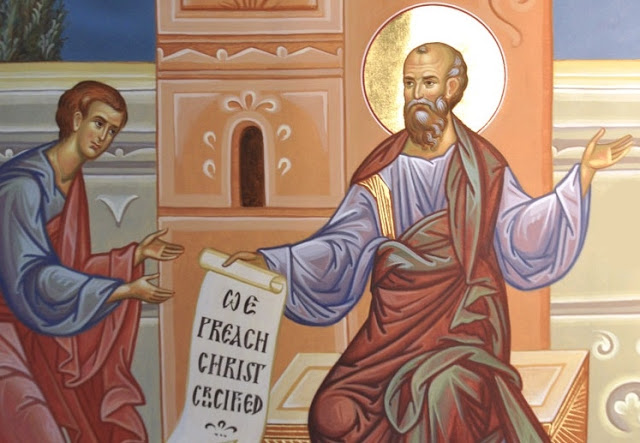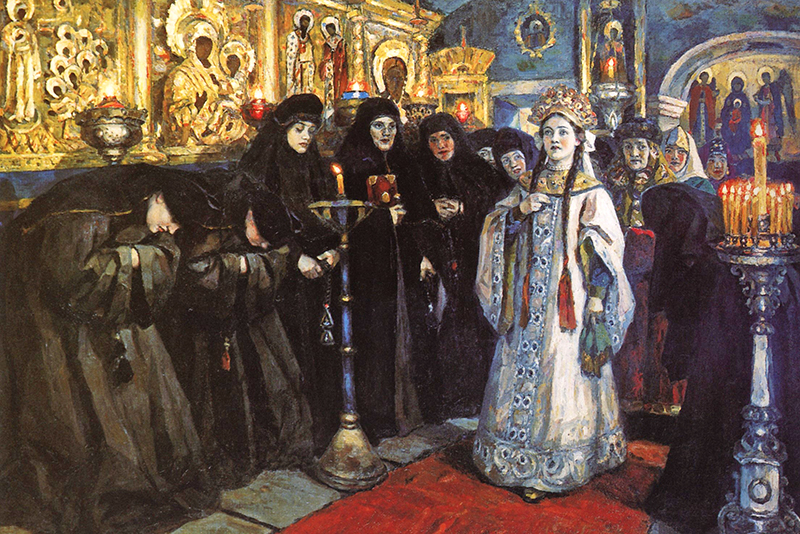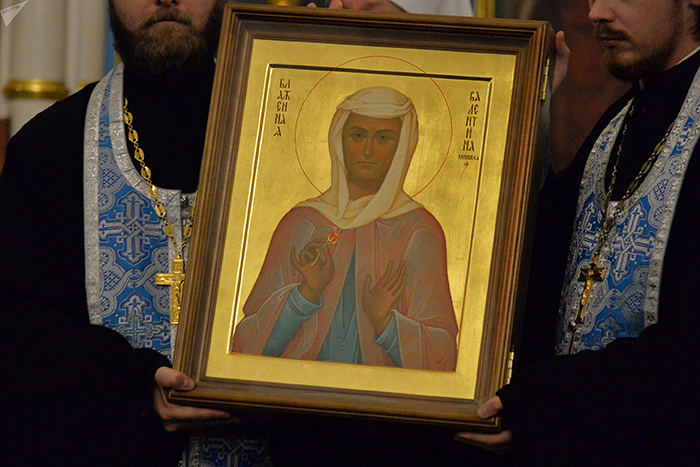
It is God’s providence that in difficult times there should always be lamps of faith that warm the cold hearts. Most importantly, they should be able to ignite others with the same ardent faith and trust in God. Matushka Valentina – Blessed Valentina of Minsk, our locally venerated saint, whose memory day is the same as that of Blessed Xenia of St. Petersburg, another universally loved saint – was such a lamp.
Valentina Sulkovskaya, nee Chernyavskaya, was born into a family of a priest in 1888, and was raised together with her three sisters in the spirit of Orthodoxy, love, and respect for parents and each other. She spent her childhood in a picturesque place, in a house built by her father. From an early age, some unusual events began to happen to her. For example, the spruce she had brought from the forest and planted near the temple where her father was serving grew in the shape of a cross.
In her adolescence, Valentina was privileged to talk to the Holy Righteous John of Kronstadt, who gave her a blessing. It is also known that the Chernyavskys were in correspondence with him. Like her father, Valentina graduated from the Minsk Theological School and often filled in for her father when teaching the Law of God to children.
Shortly before World War I, Valentina married Fyodor Sulkovsky, a collegiate councillor. Her sisters, Anna and Xenia, were married to priests. After the war and the establishment of Soviet rule, the Sulkovskys returned to the countryside, where they engaged in auxiliary farming. Fyodor Vasilyevich was falsely accused during the collectivization, arrested and exiled to a camp, and then to the Far East. The priests who were the husbands of Valentina’s sisters had been imprisoned even earlier. They all died.
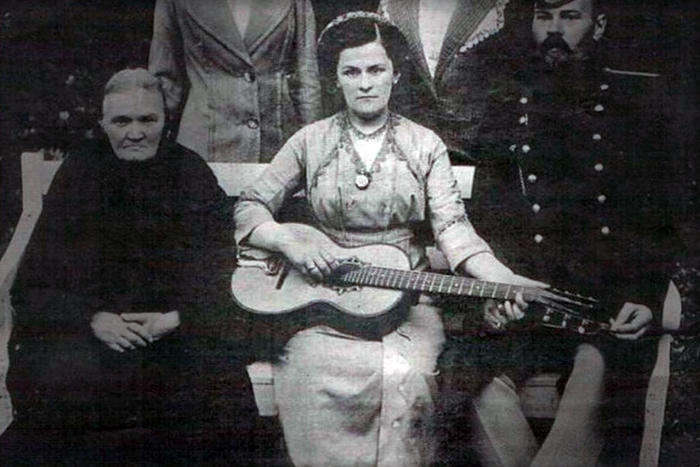
Valentina stayed in the village to care for her mother. By then, a kidney inflammation-related disease had begun to undermine her health. There was an interesting incident, when Valentina visited a visionary woman who could not walk and had spent forty years in bed. That woman said to Valentina, “You’ll take my place.” It came true. Valentina soon became paralyzed and remained bedridden until she died 33 years later.
Her family and neighbors took care of her. Valentina Sulkovskaya experienced the loss of her husband, the death of her parents, the death of the last clergymen of the Diocese of Minsk, and her own illness, but all those hardships did not break her; rather, they strengthened her spirit. She took upon herself the feat of serving the Lord as a fool-for-Christ.
People carried sick children to the bedridden elder, asked her to pray, and asked her for practical and spiritual advice. She lay on the couch surrounded by holy icons and remained in constant prayer. Candles and lamps burned in front of the icons and made her cell well-lit day and night.
Everyone who came into her house was greeted with a special wooden cross. Even during her lifetime, she worked miracles through her prayers. She comforted people and led them to reform their lives and to repent. Most often, she wrapped her answer in the guise of an allegory or parable, and spoke in such a way that only the person whom she answered could understand. She herself lived very modestly. She never took money or tasted the treats the pilgrims were bringing her. She said it was easier for her to lie in bed hungry.
Matushka Valentina foresaw the Great Patriotic War. She told her fellow villagers: “We will have to see iron birds.” During the war, she blessed and prayed over the handkerchiefs that the wives, mothers and sisters of the mobilized soldiers were bringing. Men would hide these handkerchiefs under their uniforms, and then returned home alive from the war.
Matushka Valentina performed her feat of prayer for the sake of bolstering the faith of those who were direct witnesses and participants in the courageous defiance of the Church to the atheist government, at a time when the activities of the Church were almost completely banned. This was what made her ministry especially valuable.
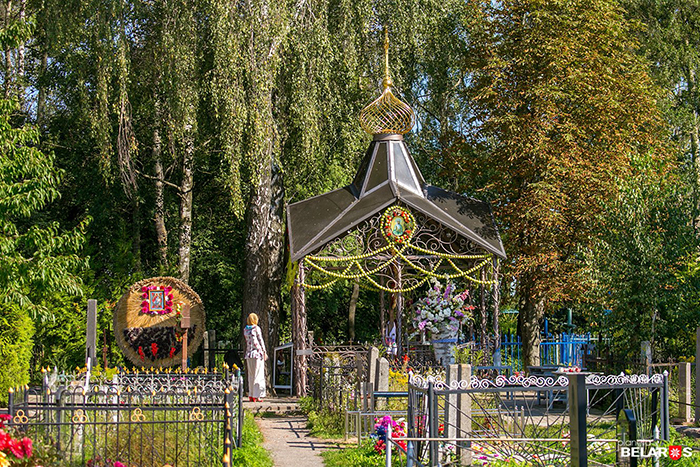
She did not help those who only saw her as a sorceress and healer.
Matushka died on February 6, 1966, and was buried in the local cemetery. Her canonization took place on February 6, 2002, the memory day of Blessed Xenia. Blessed is God in his saints!
While still alive, she told many of her visitors, “When I die, you may still come to me as if I were alive, and I will help you.” There are many stories on the Internet about miracles that happened through the prayers of Matushka Valentina. You can hear even more at her grave, in the cemetery not far from the village Krysovo near Minsk. There are always some people there. My own “relationship” with Matushka was and still is a great comfort and reinforcement of my faith. Our “children” (they always remain children to us, even if they are twice as old as me, for example), that is, the residents of the boarding home are especially fond of the Holy Blessed Valentina of Minsk. We used to travel together to the Blessed Valentina’s grave to pray, and these trips have always been a real celebration and delight of our hearts. Both in life and after death, Matushka Valentina continues to serve people and be a comforter; people respond to her with great love.

